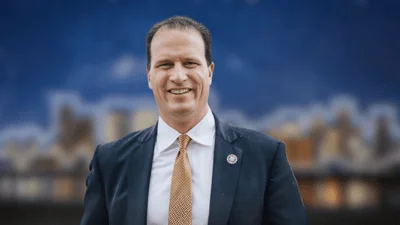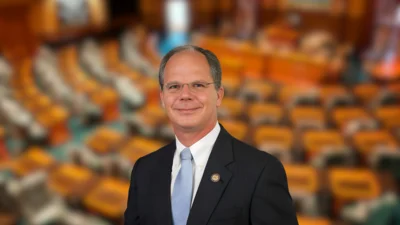The Congressional Record is a unique source of public documentation. It started in 1873, documenting nearly all the major and minor policies being discussed and debated.
“TRIBUTES TO RETIRING SENATORS” mentioning the U.S. Dept. of Transportation was published in the Senate section on pages S8839-S8840 on Dec. 13, 2010.
The publication is reproduced in full below:
TRIBUTES TO RETIRING SENATORS
Bob Bennett
Mr. McCONNELL. Mr. President, we are losing through retirement a number of our most distinguished Members. None of them have I been closer to than the Senator from Utah, Senator Bennett, and I am pleased he is here on the floor today. He made his farewell speech last week, and now I wish to speak about his farewell myself.
Over the last 18 years, I have come to rely on Bob's counsel, and today I wish to thank him publicly and personally for being so generous with his candid advice and unfailing good judgment. I simply would not be where I am today without the benefit of Bob's wisdom and friendship, and I am deeply grateful for it.
Bob has always been a pretty low-key guy, and he has always preferred working quietly in the background--both rarities in politics today. But as with most everything Bob does, there is a method behind his style. As Bob once put it:
In Washington, there are two kinds of Senators . . . work horses and show horses. I decided I would be a work horse.
Then he went on to explain the difference. He said:
Most of the show horses look in the mirror in the morning and see a President looking back at them . . . But we haven't elected a bald president in this country since [Dwight] Eisenhower [so] I look in the mirror and realize I don't have the qualifications.
What Bob failed to point out, of course, is that he has one of the longest resumes in the Senate. So I would like to take a moment today to go through just some of the things he has achieved in a very eventful life.
Born in Salt Lake City, Bob was the youngest of Francis and Wallace F. Bennett's five children. Bob learned the value of hard work from his dad and the importance of faith from both his parents. The product of public education, Bob graduated from East High School in Salt Lake City and then went on to attend the University of Utah, where he majored in political science and served as student body president.
After college, he served 3 years as Chaplain in the Utah Army National Guard. By then, Bob's father had already been a U.S. Senator for a number of years; and after his service Bob joined his dad's Senate reelection campaign in 1962. It was a close race, but Bob's father was able to win--and Bob himself was hooked on politics. After working on the campaign, he wasn't much interested in returning to Bennett Paint & Glass, so he packed his bags and moved to DC.
After bouncing around a little as a press secretary in Congress, a corporate researcher working on Federal pension law, and chief administrative assistant for his dad, he took a job as a lobbyist for J.C. Penney.
Now, in those days, lobbyists did not make as much money as they do today. But Bob enjoyed the work and the friendships he made, including his friendship with the legendary Bryce Harlow. Bryce ended up becoming more than a friend to Bob, he really became a mentor to him. And when Nixon won the Presidential election in 1968, Bryce pulled him aside and gave him some marching orders: ``If I have to give up my cushy corporate job to serve this administration,'' he said, ``so do you. Go get measured for a suit, go over to the Department of Transportation. Show up; you're going to be John Volpe's head of congressional relations.'' And that is exactly what Bob did. Bob will tell you he was proud of his work and experience he gained at DOT. He says no department was more successful. And he has all of the Presidential pens to prove it.
At the end of 1971, Bob was ready to leave government and start something new. So he bought the public relations firm Robert Mullen & Co. and soon unwittingly found himself right in the middle of the Watergate scandal. What Bob didn't know when he bought the firm is that it doubled as a CIA front and that one of its employees had organized the break-in at the center of the Watergate investigation. The unwanted attention ruined Bob's new business and completely changed the course of his career.
Howard Hughes was one of Mullen's clients at the time, and he asked Bob to work for him directly in California. Looking for a fresh start, he took the job, and left Washington for the west coast. After that, Bob found success running a company that made day planners and organizers. Under his leadership, the company went from 4 employees to 700 employees and $80 million in sales. And then, in 1992, with Utah Republican Jake Garn retiring from the Senate, Bob decided to fulfill his lifelong dream and follow in his father's footsteps by running for the Senate. After a tough primary, he beat his Democratic opponent and won the election by a 15-point margin. And since entering this Chamber, he has been a central player in some of the most significant legislative efforts the Senate has undertaken over the last two decades.
A staunch conservative with a track record of finding common ground on some of the toughest issues, Bob played a central role in the bailout of the Mexican government during the peso crisis in the 1990s. For his efforts, President Clinton praised him as ``a highly intelligent, old-fashioned conservative who quickly grasped the consequences of inaction and would stick with us throughout the crisis.'' Around the same time, he was also instrumental in the passage of legislation related to the confidentiality of medical records.
As someone who has always worked hard to build relationships with Democrats, I knew I could always rely on Bob to find out the pulse of Democrats on an issue. And Democrats could turn to him too. Here is what Senator Reid once said about Bob: ``There is no more honorable Member of this body than Bob Bennett.''
Bob and I have found common cause over the years, among other things, in our defense of the First Amendment. I remember being in the trenches together over the flag-burning amendment, which we both opposed. Both of us, of course, also strongly oppose any desecration of the flag. But we agreed that an amendment to the Constitution was not the way to go. And in the end, we prevailed. We thought it was worth the fight to ensure that Congress didn't place any qualifiers on the First Amendment.
Over this time, Bob became one of my most trusted colleagues, and that is why, when I was elected Republican leader, I asked him if he would serve as one of my advisers. He is smart and level-headed, a proven leader, a successful entrepreneur, and when he speaks everyone listens. In addition, he has a remarkable gift of persuasion. Far from the floor is where Bob does his best work. It is a trait he learned from his dad.
As Bob once put it, ``Building a consensus, building relationships where people will trust and do things for you is the hardest work of the Senate, and when it comes to fruition . . . it's also the most rewarding work in the Senate.''
Bob decided long ago to do his best to stay out of the nasty political fights that occur from time to time in Washington. That is one of the reasons you don't ever see him on the Sunday shows. Bob knows that most of the time the media is just looking for that gotcha moment. He is more interested in spending his time focusing on what is best for his constituents, whether it is in this Chamber, in committee, or back home.
In addition to Bob's role in leadership, he served as the ranking member of the Rules and Administration Committee, as the chairman of the Joint Economic Committee, as the senior member of the Senate Banking Committee, as the ranking member on the Subcommittee on Energy and Water Development and on the Senate Appropriations Committee. He has been involved in nearly every major issue that has come through this Chamber over the past two decades. He has worked hard to fix our economy and health care system, simplify the tax code, reform entitlement programs, and strengthen America's national security at home and abroad.
But Bob will tell you his most important job is being a husband. And of course today we also pay tribute to Joyce, who has played such an active role in the life of the Senate family over the years. We will miss them both. Together, they have raised six children and in nearly 50 years of marriage, they have certainly seen a lot.
When asked about his legacy, Bob has pointed out that it was always his hope to live up to his own father's example of integrity and hard work. And Bob, we know that if your dad were here today, he would be so proud of all you have accomplished not only in this Chamber and for our country, but also as a devoted husband, father and grandfather. So it is with a sense of gratitude for all that he has meant to the Senate and to me personally, that I pay tribute to Bob Bennett. It has been an honor to serve with him, and most importantly to call him a friend. And on behalf of the entire Senate family, I want to thank Bob for his service. He will be missed, and we wish him all the best in the next chapter of his life.
Mr. BAUCUS. Mr. President, I too want to say a couple of words about Bob Bennett. We are deeply impressed with his sense of integrity and his commitment to working for basic, sound principles. I might say he made a big impression on me when he came to my office--I think on his own, but maybe he was appointed to do so--to help find a way to make the Senate more relevant and to find ways to change the Senate rules to address some of the frustration a lot of Senators have. People who are watching may wonder, gosh, why do Senators think they are not relevant? I must say that a lot of Senators feel they want to get something done quickly and they are sometimes frustrated with the actions of another Senator who doesn't quite have the same idea. I was impressed with Bob's attitude. He talked to me and asked, ``What can be done, Max? What ideas do you have?'' It was very refreshing. I remember thinking at the time that this will be difficult, and I told him it would be difficult. I didn't tell him how difficult I thought it would be. But I was impressed with his freshness and his desire to help adjust the Senate rules.
____________________








